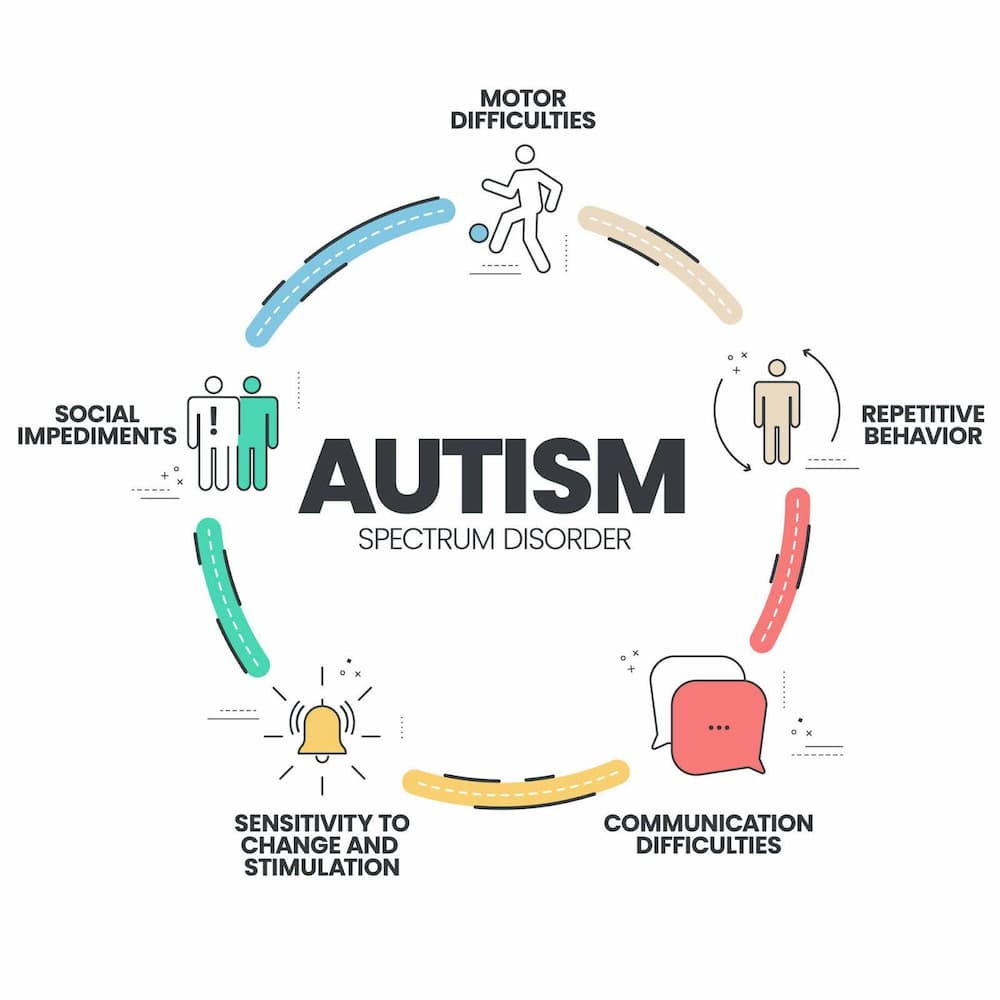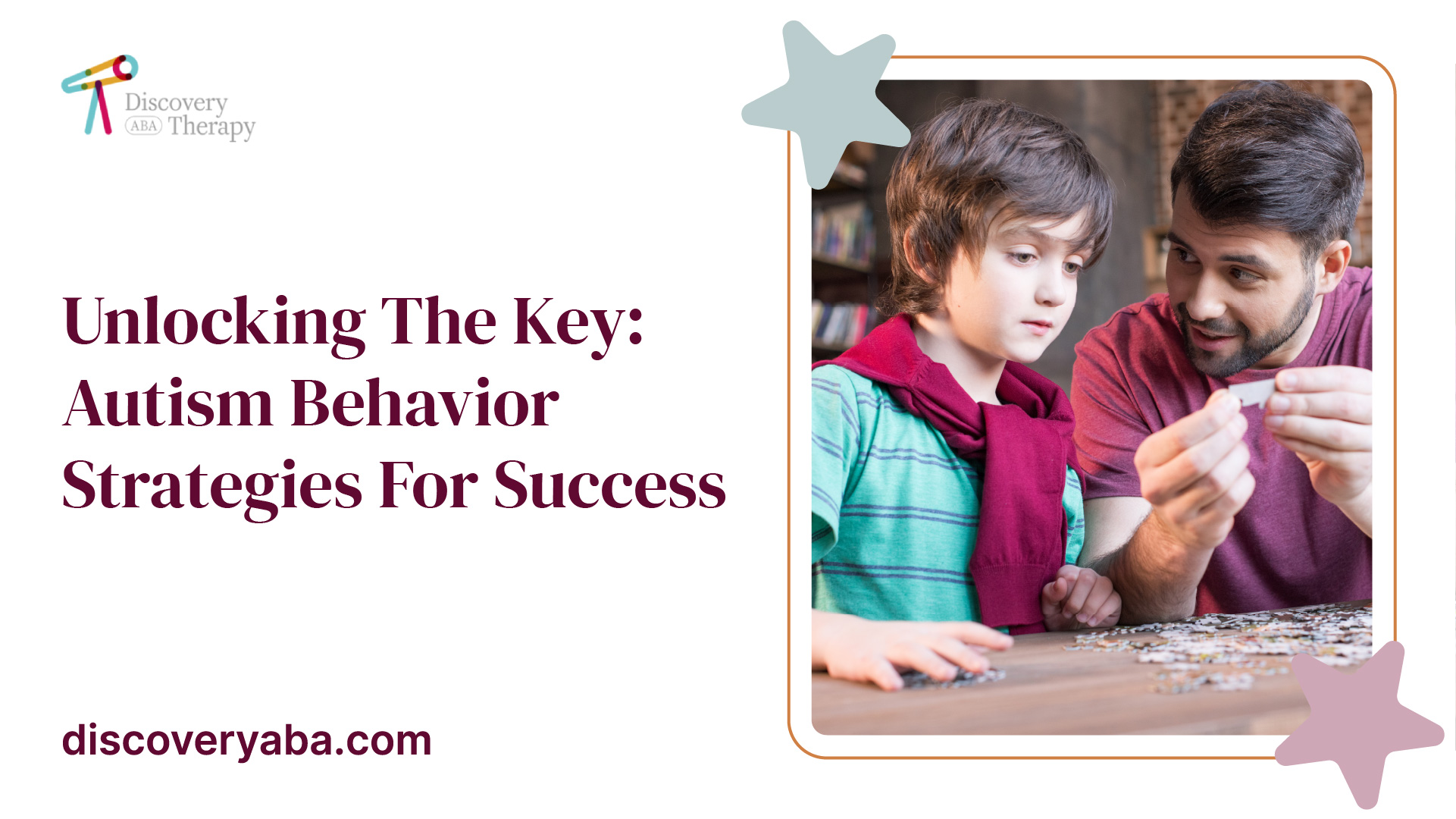Trick Indications and Signs to Identify in People With Behavioral Autism
When you come across someone with behavioral autism, acknowledging essential symptoms and signs is necessary. You might notice challenges in social interactions and communication, in addition to a solid demand for routines. Additionally, sensory level of sensitivities can cause frustrating experiences. Recognizing these traits can enhance your support and interventions, but there's even more to discover about just how these actions materialize in daily scenarios. Allow's explore what these signs really resemble.
Challenges in Social Interactions
When you connect with a person on the autism range, you may observe they battle with social signs and interaction. These challenges can make social communications really feel frustrating for them. You might see them avoiding eye get in touch with or standing as well close or also far during conversations, which can create misconceptions. They might not notice body language or facial expressions, making it harder for them to assess just how others are really feeling.
When they do engage, they could chat concerning their interests in great detail without noticing if you're interested. Comprehending these challenges can aid you come close to interactions with compassion and persistence, fostering a much more comfortable environment for both of you.
Problem With Verbal and Non-Verbal Communication

Identifying these signs is vital, as it assists you far better support and involve with people on the autism range. By comprehending their interaction difficulties, you can cultivate extra meaningful connections and provide a more helpful setting.
Repetitive Actions and Regimens
Interaction difficulties commonly come with various other indicators of autism, such as repetitive habits and a strong choice for routines. You might discover that people with autism often participate in particular, repeated actions, like hand-flapping, rocking, or repeating expressions. These behaviors can provide comfort and a feeling of control in an usually overwhelming world.
Routines are just as vital; many individuals grow when they adhere to a structured routine. You might find that changes to these routines can lead to substantial distress. For instance, if they have an everyday routine of eating morning meal at a specific time or adhering to a particular course to institution, any type of disturbance can cause stress and anxiety.
Acknowledging these patterns aids you comprehend their behavior and supply assistance. By suiting their need for routine and enabling repeated actions, you can create a much more comfortable setting that relieves their difficulties.
Sensory Sensitivities

Typical Sensory Triggers
Sensory level of sensitivities can considerably affect every day life for people with autism, as specific stimulations typically cause frustrating responses. Usual sensory triggers include loud sounds, brilliant lights, and solid scents. You may notice that sudden audios, like alarm systems or sirens, trigger stress and anxiety or distress. Fluorescent illumination in shops can feel severe and unpleasant. Appearances can additionally play a significant duty; harsh textiles or certain food structures may be intolerable for you. Furthermore, crowded places can overwhelm your senses, making it difficult to relax or focus. Understanding these triggers can aid you handle your atmosphere better. By understanding what affects you, you can take actions to reduce discomfort and boost your day-to-day experiences.
Behavioral Reactions Explained
Understanding your behavioral reactions to sensory sensitivities is essential, as they typically expose how you engage with the globe. You may see that particular noises, lights, or textures overwhelm you, leading to stress and anxiety or pain. When confronted with these stimuli, you might take out, cover your ears, or also react strongly. These feedbacks aren't just peculiarities; they're your method of handling overstimulation. You might additionally locate on your own looking for certain sensory experiences, like deep stress or peaceful settings, to help ground on your own. Identifying these patterns helps you comprehend your needs much better and can lead just how you connect them to others. By acknowledging your sensory level of sensitivities, you can work towards producing a setting that feels extra comfy and convenient for you.
Coping Methods Summary
Identifying your sensory level of sensitivities is just the very first action; currently it's time to discover coping methods that can aid you manage those experiences effectively. Start by producing a sensory toolkit tailored to your needs. Developing an organized routine can additionally offer predictability, reducing stress and anxiety around sensory overload.
Restricted Interests and Focus
While several individuals create a wide range of interests, those with autism commonly show restricted interests and an intense focus on specific subjects. You might discover that someone with autism can spend hours delving right into their favorite topic, whether it's a particular sort of train, a particular film, or a clinical idea. This extreme emphasis isn't just a hobby; it can become a central part of their identification and social communications.
You may locate that conversations revolve around these passions, and they may have a hard time to engage in wider topics. By see here now comprehending and recognizing these restricted passions, you can cultivate an encouraging atmosphere where they really feel valued and recognized, enabling for even more purposeful connections and interactions.
Emotional Law Problems
People with autism typically encounter difficulties in emotional policy, which can be influenced by their intense emphasis on details passions. You could notice that when an individual is deeply taken part in a preferred task, they can experience strong feelings, whether enjoyment or aggravation. This intensity often makes it difficult for them to move equipments or handle their sensations when points do not go as planned.

Irregularity in Developing Turning Points
When it comes to developing turning points, you'll observe that individuals with autism typically show a large range of irregularity. You might see a kid stand out in language skills but battle with social communications.
It's necessary to acknowledge that each person's trip is one-of-a-kind. Observing these patterns can assist you recognize their staminas and requires much better.
Regularly Asked Questions
How Is Autism Identified in Kid and Grownups?
To my latest blog post identify autism in youngsters and grownups, specialists review actions, interaction abilities, and social communications. They typically use standardized examinations, interviews, and monitorings to identify if an individual meets the criteria for autism spectrum problem.
Exist Different Types of Autism Spectrum Disorders?
Yes, there are various kinds of autism range problems, including Asperger's disorder and pervasive developmental disorder-not or else specified. Each type varies in severity and characteristics, so comprehending these differences can aid you much better assistance individuals with autism.
What Treatments Are Effective for People With Autism?
When thinking about efficient therapies for individuals with autism, you'll locate options like Applied Actions Evaluation, speech treatment, and work-related therapy. Each approach can help enhance communication, social abilities, and day-to-day working customized to specific demands.
Can Individuals With Autism Lead Independent Lives?
Yes, individuals with autism can lead independent lives. With the right support, abilities training, and sources, you can assist them establish self-sufficiency, take care of daily tasks, and grow in various environments, cultivating their self-reliance.
How Can Family Members Assistance Loved Ones With Autism?
You can sustain your liked ones with autism by creating a structured atmosphere, motivating their rate of interests, practicing patience, fostering communication, and advertising social skills. Celebrate their accomplishments, regardless of exactly how little, and construct a helpful neighborhood.
Although several individuals on the autism spectrum can comprehend and make use of language, they often deal with substantial obstacles with both spoken and non-verbal interaction. Recognizing these signs is necessary, as it assists you better support and involve with individuals on the autism range. You may discover that individuals with autism typically involve in details, repetitive actions, like hand-flapping, rocking, or duplicating phrases.Sensory sensitivities can considerably influence daily life for people with autism, as particular stimulations often set off overwhelming reactions.When it comes to developmental landmarks, you'll observe that pop over to this web-site individuals with autism usually show a vast variety of variability.